BY ANDREW CHECCHIA | Borscht and bombs tell a bittersweet story of community and tragedy in “Veselka: The Rainbow on the Corner at the Center of the World,” a documentary about Veselka, the storied Ukrainian diner in the East Village. The film premiered Feb. 23 at Village East Cinema by Angelika.
The movie chronicles the family-owned institution, a remnant of the area’s history as Little Ukraine, during the period that owner Jason Birchard took over the restaurant’s operations from his father, Tom Birchard, during the COVID pandemic and Russia’s invasion of Ukraine in 2022.
“The war started, and we hadn’t gotten underway yet,” said the film’s director, Michael Fiore, who has been eating at Veselka for more than 20 years since he was an N.Y.U. student. He first pitched the idea of a documentary to the Birchards in 2021. When the invasion happened, he told them, “If you’re going to tell this story, now’s the time.”
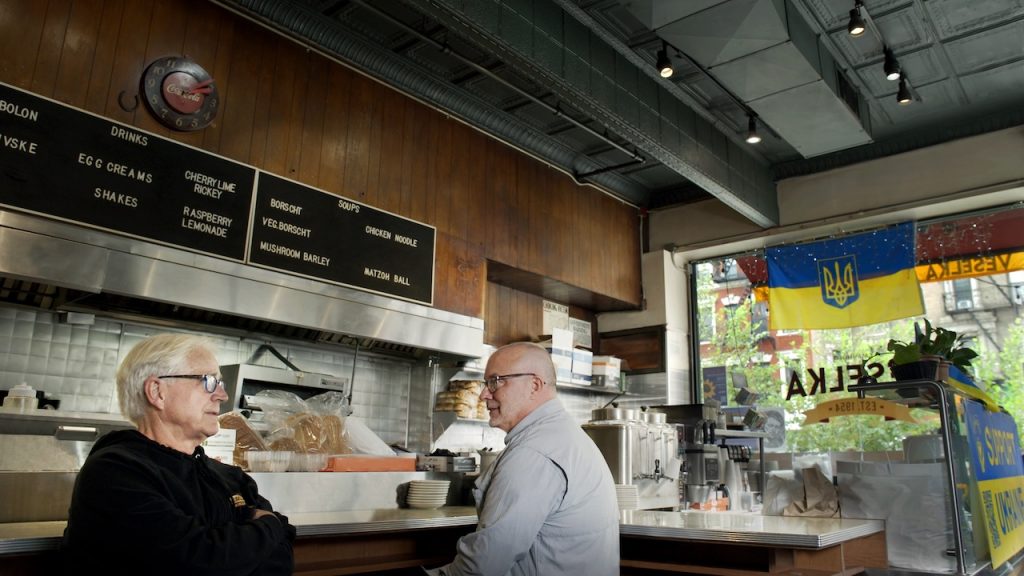
Fiore said that current events mirror the restaurant’s origin in many ways. It was established by Jason’s grandfather Wolodymyr Darmochwal in 1953 after he escaped violence in Soviet-controlled Ukraine following World War II. What started as a small candy and convenience store gradually developed into a full restaurant serving Ukrainian staples.
“This is a story that’s repeating itself,” Tom added. “This is a story that I witnessed 50 years ago, and I really thought that we had moved beyond it, and that Russia was inching toward democracy. But that hope and dream died a long time ago.”
The movie, narrated by Golden Globe-winner David Duchovny, attempts to bring an international conflict to a personal level, showing the human consequences of geopolitics halfway across the world from where the events unfold. Most of the documentary explores Veselka’s role as a hub for Ukrainian immigrants, particularly since the war began two years ago. Since the conflict commenced, Jason has led efforts to donate supplies and money to Ukraine, raising more than $600,000 in two years.
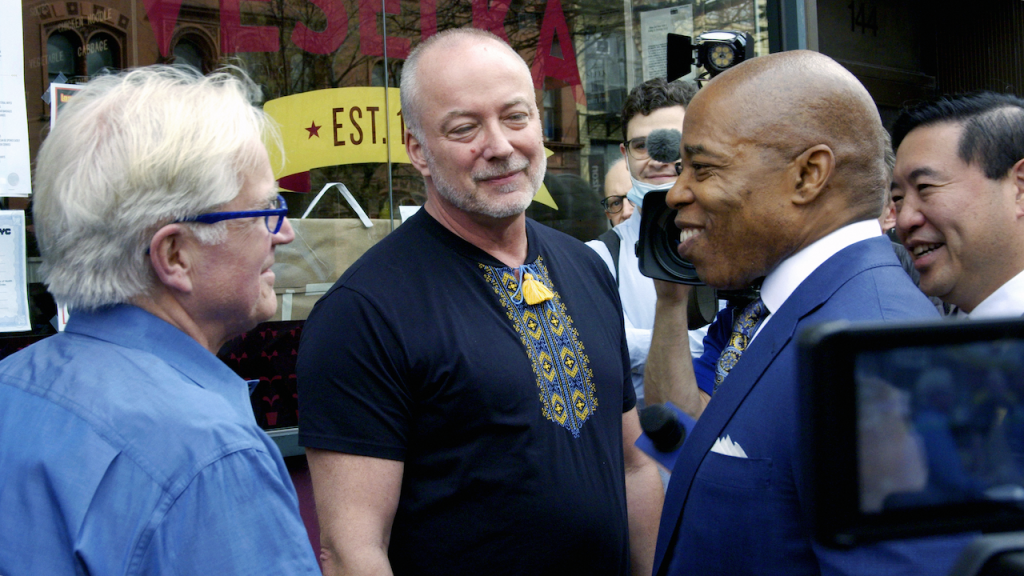
And, at a more personal level, Jason has sponsored 10 Ukrainian refugees to come to the U.S. through the Uniting for Ukraine program, an expedited immigration process for Ukrainians affected by the war, allowing them to live and work in the U.S. for two years. The refugees Jason has sponsored have mostly been extended family members of Veselka employees.
“It was important that we captured what was going on,” said Jason, who often appears in the film wearing a vyshyvanka, a traditional Ukrainian shirt meant to show hope and pride. “This continued war is raging, but it was important to show how it affects this small little hamlet and the employees on an emotional scale.”
Through these efforts, Jason, half-Ukrainian, and Tom, who married Darmochwal’s daughter to join the Ukrainian family, have become ambassadors for the Ukrainian American community in New York City. The movie takes time to highlight their efforts to aid Veselka’s immigrant employees.
One employee, Vitalii, who Jason described as a “brother,” starts the film camera-shy and reserved, in typical Eastern European fashion, Tom joked. But as Vitalii becomes more comfortable and agrees to interviews, his story centers the film’s emotional arc as he works to get his mother out of the violence and chaos in his home country.
“Over time, people got more comfortable and wanted to share that this is an atrocity,” Jason added.
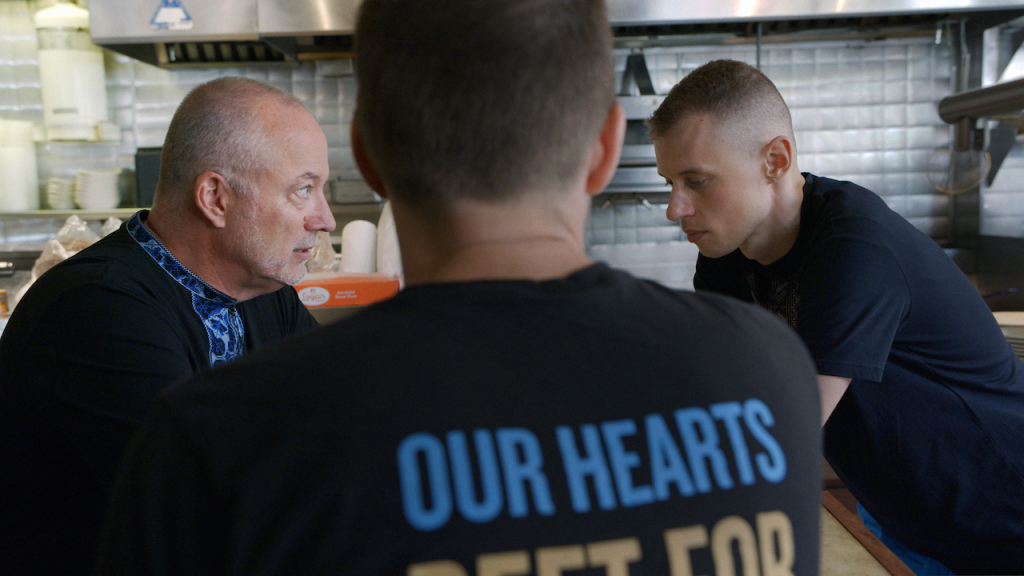
After much convincing, Vitalii’s mother comes to New York City to visit, arriving to a quietly emotional airport reunion. But as she stays longer and the war drags on, Vitalii convinces her to remain in the U.S. full time. Like other employees’ family members sponsored by Jason, she ends up working in the Veselka kitchen, a packed underground facility churning out borscht, stuffed cabbage and the ever-present, hand-crimped pierogies (called varenyky in Ukrainian).
“Veselka has become a second home for a lot of Ukrainians now,” Vitalii says near the movie’s end.
Filmed over about a year, from the 11th day of the invasion to its one-year anniversary, the documentary punctuates these personal stories with international headlines — from Ukrainian President Volodymyr Zelenskyy’s visit to the U.S. to lifting mask mandates in New York City.
The film’s political side usually takes a back seat to the personalities in the restaurant. But both New York City Mayor Eric Adams and Governor Kathy Hochul make appearances, ostensibly to discuss issues affecting both small business owners and the Ukrainian community.
Adams comes off as distracted, focused on smiling to passersby outside the restaurant as the Ukrainian consul general explains the realities of the war. He contrasts with Hochul, who sits down with the owners for a more intimate meal. Fiore explained that Adams’s visit was advertised as a photo-op and he “wanted to cover too much,” while Hochul, who came to Veselka three times over the year, was more focused and didn’t bring a press entourage.
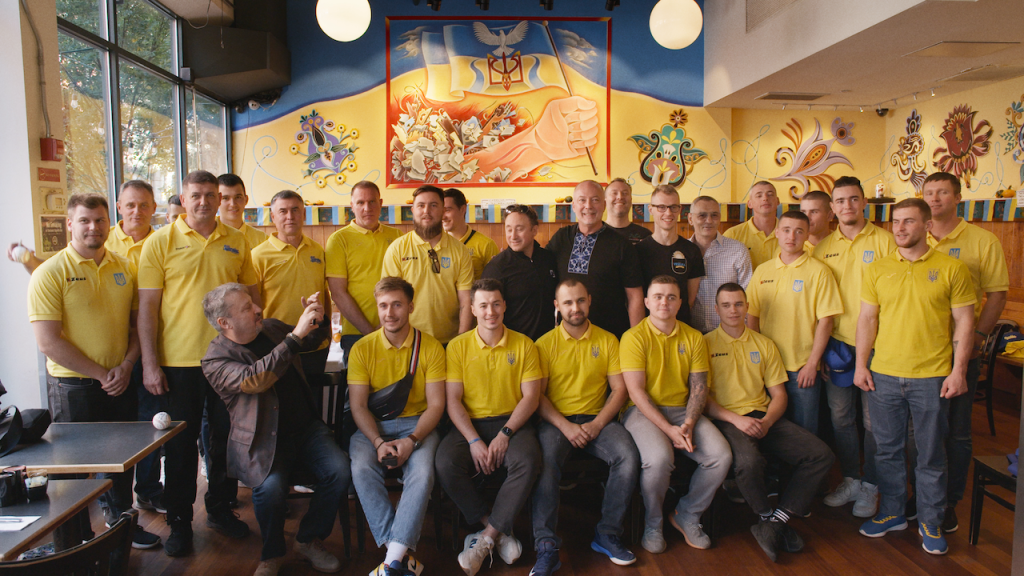
Released to coincide with the two-year anniversary of the war, Jason said he hopes the film will help keep the conflict in the public consciousness, especially as support wavers nationally and headlines shift away from the conflict to domestic issues like the 2024 presidential election.
“Thankfully, we’re able to get it out now, so that we can continue to shine a bright light on it,” Jason said. “We live in a short news cycle, but we’re continuing to do what we can.”
The movie is screening in New York, New Jersey, Los Angeles, Washington and select theaters in Ukraine. A number of showings, including in New York, have sold out, and Fiore said he hopes the interest will extend the film’s run and expand its reach.
“There were big footsteps my grandfather made here,” Jason said. “He was one of the first in this community to be outspoken, who wanted to see a free Ukraine. My father continued to build on what he started. I love what I do, I’m proud of who I am and my heritage, and I hope to see [Veselka last] another 70 years,” he said, quipping, “just maybe not personally.”

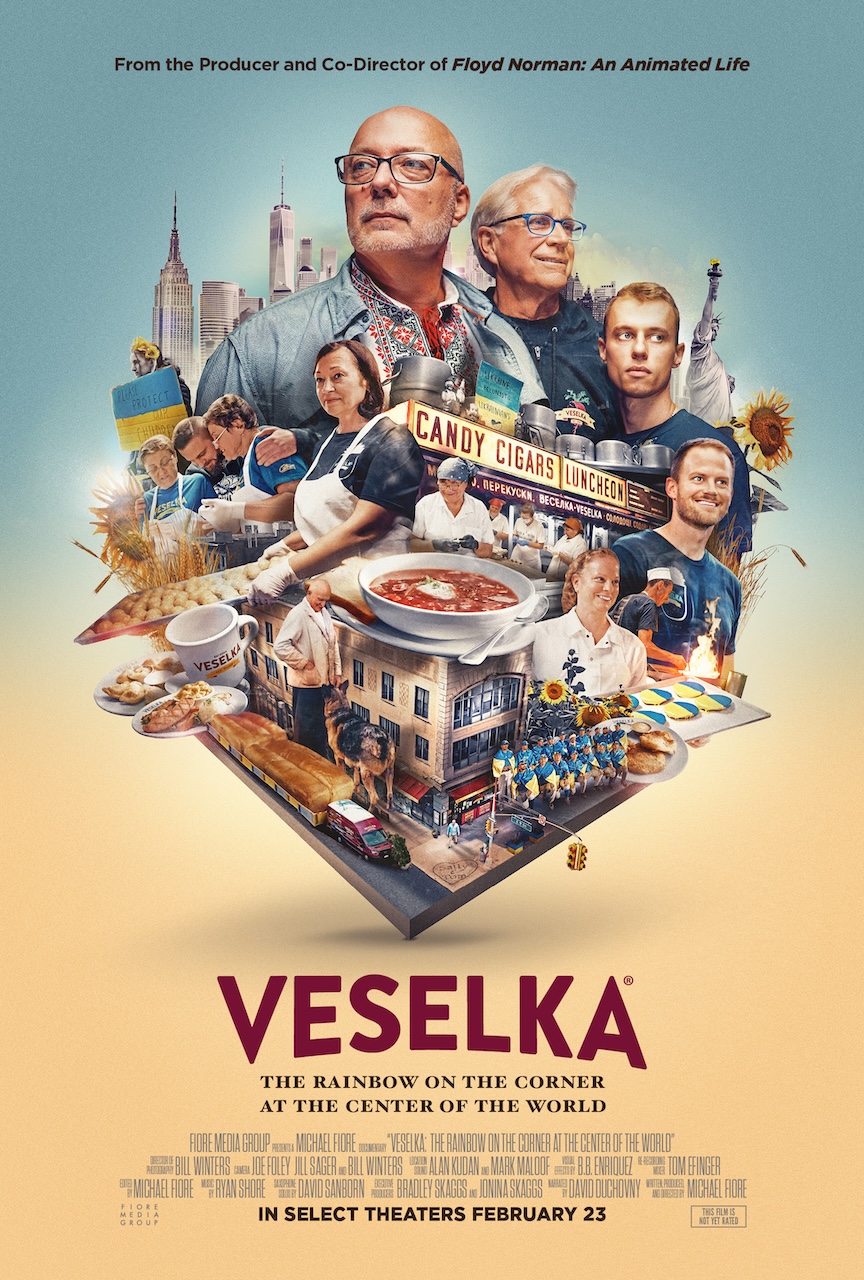
Be First to Comment